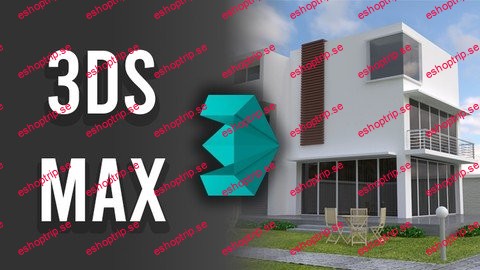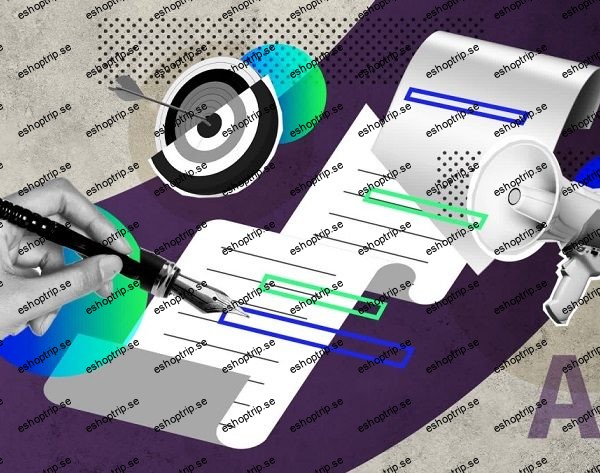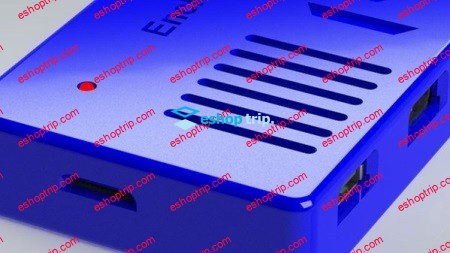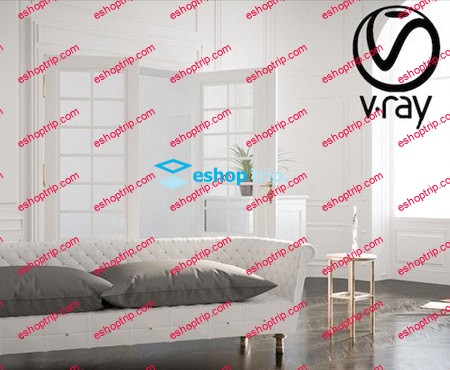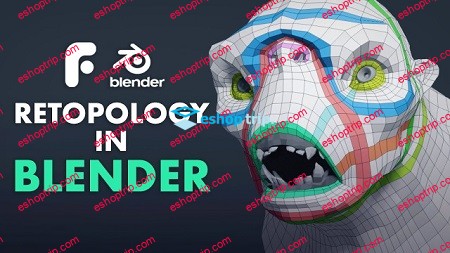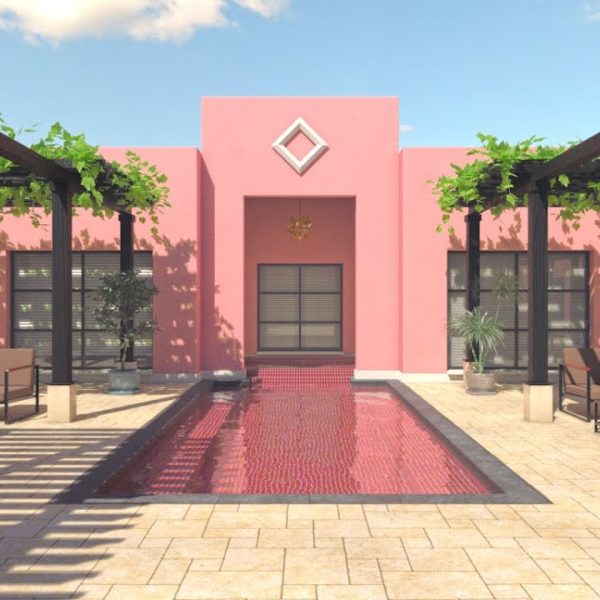Last updated 4/2020
MP4 | Video: h264, 1280×720 | Audio: AAC, 44.1 KHz
Language: English | Size: 7.55 GB | Duration: 11h 31m
Learn the foundations of 3ds Max to start modeling, texturing, lighting and rendering things from imagination.
What you’ll learn
3d modeling
3d rendering
texturing
3ds max
3d animation
architectural visualization
game asset creation
Requirements
A three-button mouse
Description
IntroductionAre you curious about diving into the path of becoming a 3D artist?Perhaps you’re interested in motion design and want to use 3d to expand your creations.Perhaps you’re interested in Game development, creating and animating characters.Perhaps you want to work on realistic architectural renderings.INSTRUCTOR :My name is Steven Andriantsiratahina and I am a 3D artist who has worked on video games, architecture and animation.GOAL OF THE COURSE :By the end of this course, you would have a full final render of a realistic exterior of a building.This course will start off with the very basics of creating simple shapes, then we will learn how to use polygon modeling to create objects from reference and imagination. Then we will learn to texture and animate those objects.Later on in the series we will learn how to add a skeletal system to a human model and animate that, creating a simple walk cycle.The course will contain assets that are ready to download to help you start some of the projects. The instructor will then guide you towards the steps needed to get to the end result.YOU WILL LEARN:How to create objects such as simple shapes, text, complex shapes etc.How to use polygon modeling to create objects from imagination and referenceHow to animate objectsWorking with camerasHow to create realistic materials and textures such as Metal and GlassHow to use a skeletal system to animate charactersHow to setup a light system for realistic architectural exteriorsThe solution to a lot of beginner mistakes
Overview
Section 1: Getting started with 3ds Max
Lecture 1 Downloading 3ds Max
Lecture 2 Interface overview
Lecture 3 Navigating the viewport
Lecture 4 Creating objects
Lecture 5 Select, move, rotate, scale
Lecture 6 Rendering your scene
Lecture 7 Let’s make a wallpaper
Lecture 8 Adding an ink and paint material
Lecture 9 Adding lights
Lecture 10 Cameras
Lecture 11 Keyboard shortcuts review
Lecture 12 Tip: The autogrid feature
Lecture 13 Tip: How to save your files
Section 2: Common problems and solutions
Lecture 14 Intro
Lecture 15 Can’t select objects
Lecture 16 Every menu disappeared
Lecture 17 Yellow borders in viewport
Lecture 18 No rectangular selection
Lecture 19 Can’t select with drag
Lecture 20 Object showing as lines
Lecture 21 Zoomed out too far
Section 3: Types of objects
Lecture 22 Standard v.s. Extended Primitives
Lecture 23 Text object
Lecture 24 Splines
Lecture 25 Textplus object
Lecture 26 Compound objects
Lecture 27 Doors
Section 4: Making an office chair
Lecture 28 Creating the leg
Lecture 29 Cloning the legs using the Array tool
Lecture 30 Finishing the chair
Lecture 31 Coloring your chair
Section 5: Manipulating objects
Lecture 32 Intro
Lecture 33 Viewport Preview & Shading
Lecture 34 Grouping objects
Lecture 35 Isolating selection
Lecture 36 Cloning and mirroring
Lecture 37 Pivot points
Lecture 38 Layers
Lecture 39 Aligning objects
Lecture 40 Modifiers
Lecture 41 Snaps toggle
Lecture 42 BONUS: Cloth simulation
Lecture 43 Changing the viewport background
Section 6: Polygon modeling
Lecture 44 What is polygon modeling
Lecture 45 How to work with Edges
Lecture 46 How to work with Polygons
Lecture 47 How to work with Vertex
Lecture 48 How to smooth your object
Lecture 49 Chesterfield mattress pattern
Lecture 50 Modeling a coffee cup
Lecture 51 Quick tip – Selecting polygons
Lecture 52 Modeling couches
Section 7: Materials & textures
Lecture 53 Texture mapping terms
Lecture 54 Where to get textures
Lecture 55 Intro to the material editor
Lecture 56 Using the material editor
Lecture 57 Adding a bump map
Lecture 58 Using Arnold materials for realism
Lecture 59 Creating a glass material
Lecture 60 Creating a metallic material
Lecture 61 Displacement
Lecture 62 Multi/sub-object
Lecture 63 UVW Unwrap
Section 8: Animation
Lecture 64 Intro animation
Lecture 65 Following a motion path
Lecture 66 Lookat constraint
Lecture 67 Attachment constraint
Lecture 68 Curve editor
Section 9: Bones and biped for characters
Lecture 69 Intro to bones and the biped system
Lecture 70 Setting up the biped
Lecture 71 Aligning the bones
Lecture 72 Applying the biped to the model
Lecture 73 Easy way to fix envelope problems
Section 10: Manually skinning a character & walk cycle
Lecture 74 About this section
Lecture 75 Editing envelopes
Lecture 76 Fixing the head
Lecture 77 Fixing the glutes
Lecture 78 BONUS: Walk cycle
Section 11: Rigging
Lecture 79 Creating solvers
Lecture 80 Adding the rigs
Lecture 81 Reapplying the mesh
Section 12: BONUS project: Realistic architectural exterior
Lecture 82 Intro to the project
Lecture 83 Setting up the camera
Lecture 84 Setting up the lights
Lecture 85 Glass panels
Lecture 86 Using HDRi Maps to make the sky
Lecture 87 Adding the grass material
Lecture 88 Simulating the pebbles
Lecture 89 Pillars and staircase
Lecture 90 Outside walls
Lecture 91 Concrete and pillars
Lecture 92 Adding the artwork on canvas
Lecture 93 Interior lightbulbs
Lecture 94 Final Render
Section 13: BONUS: Finding jobs, inspiration and content
Lecture 95 Finding inspiration
Lecture 96 Finding 3d jobs
Lecture 97 Recommended software
Lecture 98 Recommended render engines
Lecture 99 Best practices & Beginner mistakes
Beginners who want to become 3d artists,Graphic designers looking to add 3D to their skillset,Beginners interested in architectural visualization
Homepage
